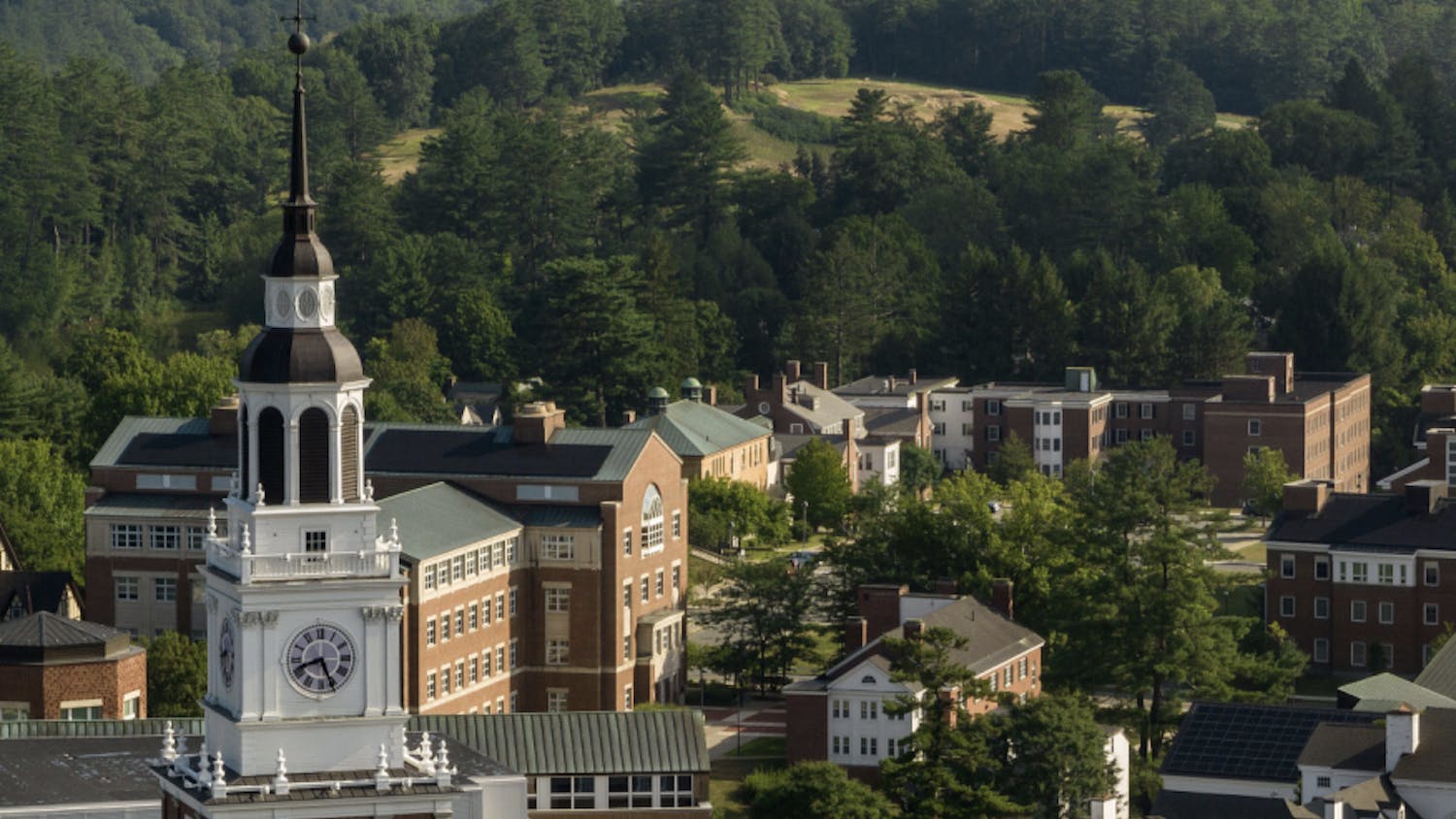The Institute for Cross-Disciplinary Engagement at Dartmouth will host its first event this weekend, a conference titled “The Sciences, The Humanities, The Future.”
At the conference, organized by ICE director Marcelo Gleiser, scientists and humanists will tackle what Gleiser calls “big questions,” topics ranging from the existence of free will to the possibility that human beings are alone in the universe. Speakers will conclude by discussing the importance of these types of interdisciplinary conversations.
Despite the broad themes that the lectures will explore, Gleiser said that the conference was made with the public in mind.
“It’s not like I’ll be talking in some philosophical language that no one understands,” Gleiser said.
All of the conference speakers chosen by Gleiser are prominent academics in their fields, he said. Among the nine scholars speaking this weekend are Dartmouth philosophy professor Adina Roskies and Massachusetts Institute of Technology mechanical engineering professor Seth Lloyd, both of whom are members of ICE’s steering board.
Gleiser said he expects full attendance on both days of the conference, noting that 170 people have already registered. He urged Dartmouth students who are not yet registered to attend the conference in order to further develop a cross-disciplinary mode of thinking.
“I hope that everybody will come to listen to these people because they are some of the best in their fields,” Gleiser said, noting that one of the speakers, MacArthur Fellow Rebecca Goldstein, also recently won the National Humanities Medal.
The idea for ICE stemmed from Gleiser’s work as a theoretical physicist, in which fundamental research questions regarding the origin of the universe and the origin of life transcend purely mathematical equations and data.
He said that there has long been a preconceived notion in academia that the sciences and the humanities are mutually exclusive.
“The point of ICE is to actually change the way people think about this [preconception] and to try to show that there are actually different aspects of how we understand the world,” Gleiser said. “You need a scientific perspective and a humanistic perspective to deal with the same problem.”
After the conference, ICE will continue to exist as a forum in which scholars from both the sciences and the humanities can interact, Gleiser said. Modeled after the Montgomery Fellows — a Dartmouth program that brings scholars to campus to build on the College’s academics — Gleiser intends for ICE to host academics who will give public lectures and interact with students and faculty over the course of several weeks in residence.
The ICE program was launched in July, with a three-part lecture series focused on zeroth-order logic, From Epistemology to Information, delivered by physics Ph.D. student Damian Sowinski the following month. Last week, current fellow in-residence, Wesleyan University religion professor Mary-Jane Rubenstein, gave ICE’s second lecture, focused on pantheism, Gleiser added.
All ICE lectures are videotaped and archived on ICE’s official website, Gleiser said. The website will also livestream both days of the conference.
On Oct. 6, Gleiser will moderate the first of nine public dialogues hosted by ICE. The event will revolve around the mystery of consciousness, he said.
ICE will begin offering online courses during the winter term, Gleiser added. A course titled Question Reality will be taught by Gleiser himself and will look at the intersection of science, philosophy and religion. A second class, taught by a Dartmouth psychology professor, will examine the nature of free will, Gleiser said.
ICE operates using a $3.5 million grant from the John Templeton Foundation.
Ultimately, Gleiser said he hopes the institute will become a permanent establishment on campus, similar to the Leslie Center of the Humanities and the John Sloan Dickey Center for International Understanding.
The conference, set to take place in Filene Auditorium, is open to the public and will begin at 2:30 p.m. on Friday and conclude at 3:30 p.m. the following day.
Anthony is a '20 from Dallas, TX. Anthony plans to major in Film & Media Studies at Dartmouth, and decided to join The D to further his passion for writing. In addition to working with The D, Anthony considers himself a passionate supporter of the Dallas Cowboys and spends his days watching movies, admiring fine art, and using the Oxford comma.



